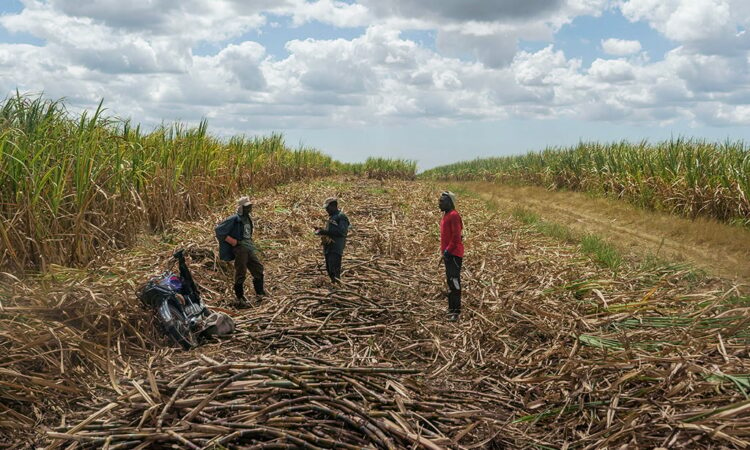Haitian sugar cane workers in the Dominican Republic suffer amid U.S. embargo on Central Romana

Multiple workers reported that agents of Central Romana warned residents in the bateyes against speaking to journalists under threat of forced eviction. For this reason, personal identifying information has been removed and names of workers have been changed for protection.
“They don’t want us to talk, but our life is not good.” – Central Romana employee
LA ROMANA, Dominican Republic — A row of small concrete homes sits secluded among towering fields of sugar cane and crisscrossing dirt roads. Young children play under the sparse shade of trees while exhausted women hang the wash to dry under the sweltering Dominican sun – and under the control of the country’s largest corporation.
Marie, 36, lives with her husband and five children in one of these houses. The dimly lit three-room structure is caked in dirt on the outside, but the inside is filled with piles of her children’s clothes and the smell of reheated rice. Seven people occupy the home, but none are authorized to live in the Dominican Republic.
They are among the thousands of workers tending fields owned by Central Romana Corp. They live in a company town— known locally as a batey — that is also owned by their employer.
Central Romana owns Marie’s house. It provides her family’s sole source of income. It runs the schools that educate her children and offers her the only refuge from Dominican immigration authorities.
Marie has lived here since 2005 without legal documents. Her children were born into statelessness. Her husband has a severe physical disability, but he still spends 12 hours a day, six days a week, in the sugar cane fields cutting the heavy stalks by the metric ton in order to earn a meager wage of 50 cents an hour, an income she reports as shrinking.
“It’s not enough for eating,” she said. “We are seven people living here. You can imagine what this means for us.”
Marie wants to find work herself and contribute to the family’s earnings, but her undocumented status keeps her confined to the home. She yearns for a better future for her children, but there isn’t much room for hope. Her oldest daughter will soon age out of the nearby school, and the intermediate school outside of the settlement requires papers.
The neighbor next door was recently evicted from his home by Central Romana because he was unable to work. Marie fears her family could be next.
The last time she went to the market in the nearby town of Guaymate, she witnessed immigration agents grabbing Haitian people off the streets. She ran through the market so she wouldn’t be caught, but later, two others were captured in the settlement.
“The fear that undocumented people have is high now,” she said, “You cannot be free in the batey.”






